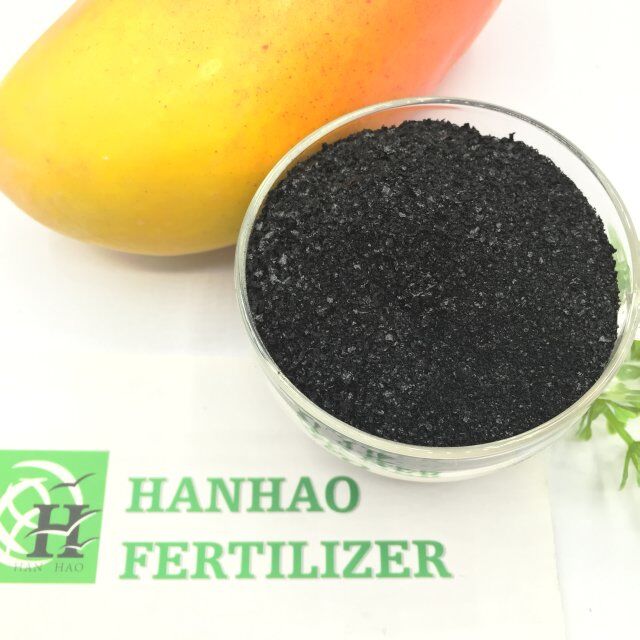
Nov . 16, 2024 17:53 Back to list
potassium sulfate plants
The Role of Potassium Sulfate in Plant Growth and Health
Potassium sulfate (K₂SO₄) is an essential chemical compound that plays a vital role in plant nutrition and health. As a source of both potassium (K) and sulfur (S), potassium sulfate is widely utilized in agriculture for its numerous benefits to plant development. This article explores the significance of potassium sulfate in promoting plant growth, enhancing nutrient uptake, and improving overall crop yield.
Importance of Potassium and Sulfur in Plants
Potassium is one of the three primary macronutrients essential for plant growth, the others being nitrogen and phosphorus. It is crucial for several physiological processes, including photosynthesis, enzyme activation, and osmoregulation. Potassium helps in the synthesis of proteins and starches and aids in the transport of sugars and other nutrients throughout the plant. This nutrient also influences water regulation, helping plants to manage stress from drought or high salinity.
Sulfur, on the other hand, is another essential nutrient required for the synthesis of amino acids, vitamins, and coenzymes. It plays a crucial role in the formation of chlorophyll, thus enhancing photosynthetic efficiency. Additionally, sulfur contributes to the production of secondary metabolites that help plants resist diseases and repel pests.
Benefits of Using Potassium Sulfate
1. Enhanced Nutrient Uptake Potassium sulfate improves the overall nutrient uptake of plants. When applied to the soil, it enhances the availability of other nutrients, promoting a balanced nutrition profile. This synergistic effect assists in the better absorption of calcium and magnesium, both of which are vital for plant health.
2. Improvement of Crop Quality The use of potassium sulfate can lead to improved quality in fruits and vegetables. Higher potassium levels contribute to better color, flavor, and shelf-life of produce, making them more appealing to consumers. For instance, potassium-rich crops such as tomatoes and carrots tend to have higher sugar content and better taste.
potassium sulfate plants

3. Disease Resistance Plants treated with potassium sulfate exhibit increased resistance to various diseases and pests. Potassium enhances the thickness of cell walls, making it harder for pathogens to invade. Additionally, the presence of sulfur helps in the formation of protective compounds, further boosting the plant's natural defenses.
4. Stress Tolerance Potassium sulfate aids in improving a plant's tolerance to environmental stresses, such as drought and salinity. A well-balanced potassium level enables better water regulation, helping plants maintain hydration even in challenging conditions. This is particularly important in areas prone to fluctuating climate and varying weather patterns.
5. Soil Health Applying potassium sulfate has positive effects on soil health. It helps in maintaining optimal acidity levels, which is crucial for nutrient availability. Moreover, the sulfate component contributes to the formation of sulfate ions in the soil, promoting microbial activity essential for nutrient cycling.
Application Practices
When applying potassium sulfate, it is essential to follow proper agronomic practices to maximize its benefits. The method of application can vary based on the crop type and soil conditions. It can be broadcasted, banded, or dissolved in water for foliar application. Timing is also crucial; applying potassium sulfate during critical growth stages, such as flowering and fruiting, can significantly enhance its efficacy.
Conclusion
In conclusion, potassium sulfate is a powerful tool for farmers and gardeners aiming to improve plant growth and health. Its dual role in supplying potassium and sulfur makes it an invaluable resource in achieving optimal crop yields and quality. By understanding the significance of this compound and employing effective application strategies, growers can enhance their agricultural productivity while promoting sustainable farming practices. As the demand for high-quality produce continues to rise, potassium sulfate will undoubtedly remain a cornerstone of modern agricultural practices.
-
Premium Amino Acid Fertilizer | Rapid Plant Growth Booster
NewsJul.31,2025
-
10 10 10 Fertilizer Organic—Balanced NPK for All Plants
NewsJul.30,2025
-
Premium 10 10 10 Fertilizer Organic for Balanced Plant Growth
NewsJul.29,2025
-
Premium 10 10 10 Fertilizer Organic for Balanced Plant Growth
NewsJul.29,2025
-
Premium 10 10 10 Fertilizer Organic for Balanced Plant Growth
NewsJul.29,2025
-
50 Pound Bags of 13-13-13 Fertilizer for All Plants – Bulk & Organic Options
NewsJul.28,2025
